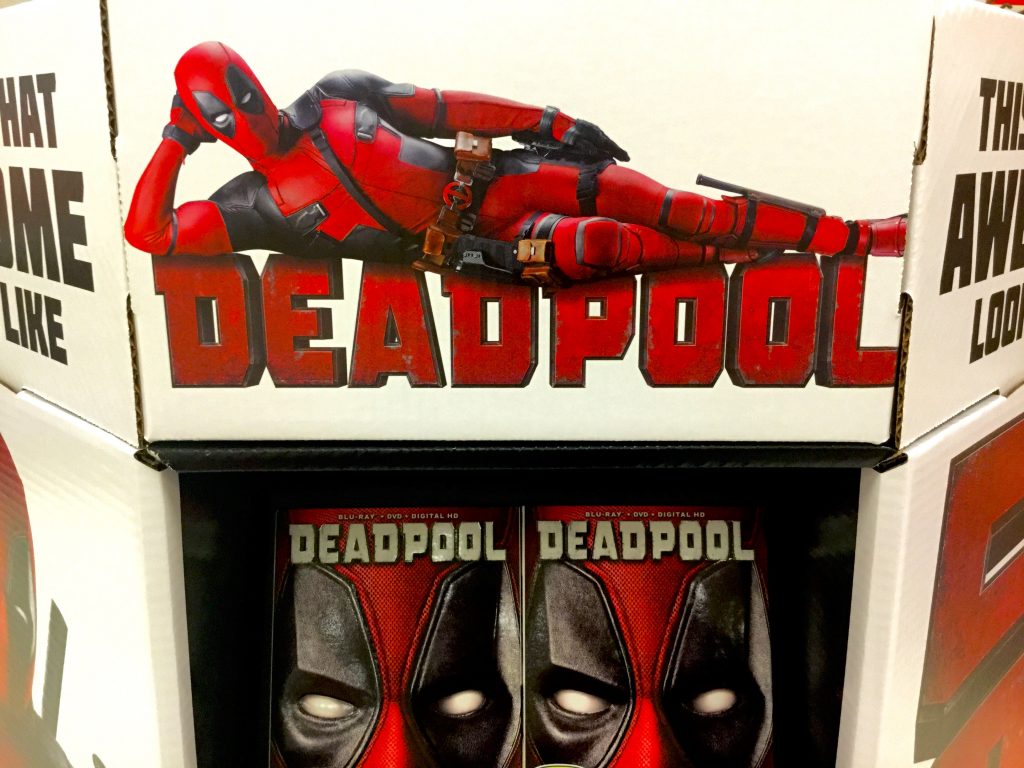
The Marvel Cinematic Universe is dead. At least, that is the common sentiment echoed time and time again in the current discourse surrounding the franchise. It is an attitude reflective of audiences’ waning interest in the recent onslaught of comic book adaptations. Marvel, in particular, has fallen under intense scrutiny for favoring quantity over quality following “Avengers: Endgame” in 2019. As a result, the past five years have felt akin to watching desperate studio executives hurl a barrage of disorganized projects at viewers, hoping that something, anything, will stick. Aside from a few smash hits here and there like “Spider-Man: No Way Home” or “Guardians of the Galaxy Vol. 3,” not much has. The latest addition to Marvel’s increasingly rare critical and commercial successes, “Deadpool & Wolverine,” hopes to shake the franchise out of its stupor.
Released July 26, the film is a direct continuation of 2018’s “Deadpool 2,” which saw the titular merc with a mouth, Wade Wilson (Ryan Reynolds) travel across space and time to rectify mistakes of his past. In the latest release, his time-traveling exploits attract the attention of the Time Variance Authority, otherwise known as the TVA. Devoted to maintaining order in the multiverse, the TVA attempts to offer Wade salvation from his supposedly doomed universe. Wade, refusing to sit idly by as those he loves vanish out of existence, enlists the help of the alleged worst Wolverine variant (Hugh Jackman) to save his world and the several others threatened by the TVA’s nefarious operations.
Despite its multiversal, world-shattering stakes, “Deadpool & Wolverine” is first and foremost a comedy, following in the uniquely witty footsteps of its predecessors. As such, enjoyment of the film is overwhelmingly dictated by whether its sense of humor strikes a chord. Fans of the first two Deadpool entries can expect a strikingly familiar brand of comedy, including the fourth-wall breaks and explicitly crude remarks that are inextricably tied to the title character. In adhering closely to the comedic stylings of the previous films, however, “Deadpool & Wolverine” does little to ward off claims that the humor is often overly reliant on shock value and shallow references to pop culture. For a film so dependent on its incessant jokes, those who sympathize with these criticisms are likely to find the viewing experience generally unengaging or even irksome.
Regardless of the highly subjective nature of the film’s comedic style, “Deadpool & Wolverine” is profoundly elevated by its slew of infectiously impassioned performances. Ryan Reynolds, as usual, pours his heart into bringing the beloved character of Deadpool to life, from his animated body language to the anarchic charm of his line delivery. Returning to the Wolverine role for the first time since 2017’s “Logan,” Hugh Jackman delivers a surprisingly ranged performance as he effortlessly conveys the tortured ferocity of his character. Reynolds and Jackman especially shine when coupled together, which fortunately encompasses the vast majority of the film’s runtime. The unlikely pair produces a dynamic seeping with onscreen chemistry, further engrossing viewers in their overlapping quests for self-worth. Though given far less material to work with than the two leads, the side characters are similarly imbued with a sense of palpable enthusiasm by their respective actors.
While the performances work wonders in uplifting the film as a whole, they fail to entirely mask underlying yet prominent issues surrounding its narrative structure and character development. “Deadpool & Wolverine” starts relatively strong in both departments. In the first act, it successfully establishes the past failures and subsequent motivations of its leads in a way that naturally propels the narrative forward, all while gracefully introducing the rules that govern its multiverse premise. Overall, the film’s opening portion is tightly written, consistently entertaining and well-paced.
This promising start begins to tear at the seams once Deadpool and Wolverine are thrust into the Void, a Mad-Max-esque wasteland at the end of time where the TVA banishes all of its undesirables. The time spent in the Void predominantly consists of the banished pair wandering about and finding themselves in occasional skirmishes or comical interactions. At this stage, the film largely neglects to further develop its two leads and abandons the impending threat of the TVA in the outside world, instead focusing on the perils of the Void. Consequently, the second act feels strangely stagnant and meandering. It is reasonable to suspect this feeling will only intensify upon rewatches, where not even the anticipation of surprise moments and cameos can hold viewers’ attention. The faults that arise here bleed into the final act as well, as the film attempts to resolve conflicts and conclude arcs in a manner that seems slightly unearned given the preceding act’s glaring oversights. Although the shortcomings described result in a partially disjointed narrative, they are by no means disastrous in their impact on the film’s entertainment value. They do, however, hinder it from being a comprehensively robust package.
Given its explosive release, some have tried to position “Deadpool & Wolverine” as the MCU’s savior: proof that the franchise has reclaimed its throne, so to speak. The film has certainly injected new life into the Marvel Cinematic Universe, being the first R-rated entry and the first to directly incorporate the X-Men series among other Fox-era Marvel films. However, it bears a great deal of the same issues that cripple other MCU entries. As described previously, the script is not the most sound. The cinematography and Shawn Levy’s overall direction lack a distinct voice. The action choreography, though satisfyingly hyper-violent, is not particularly memorable or innovative. In conjunction, these aspects are certainly competent but emerge mostly unsuccessful in leaving a long-lasting impression. So, does “Deadpool & Wolverine” signal a definite return to the glory days of the MCU? Improbable. Rather, the film will more likely provide a brief glimmer of absurdist entertainment amidst Marvel’s turbulent path ahead.
